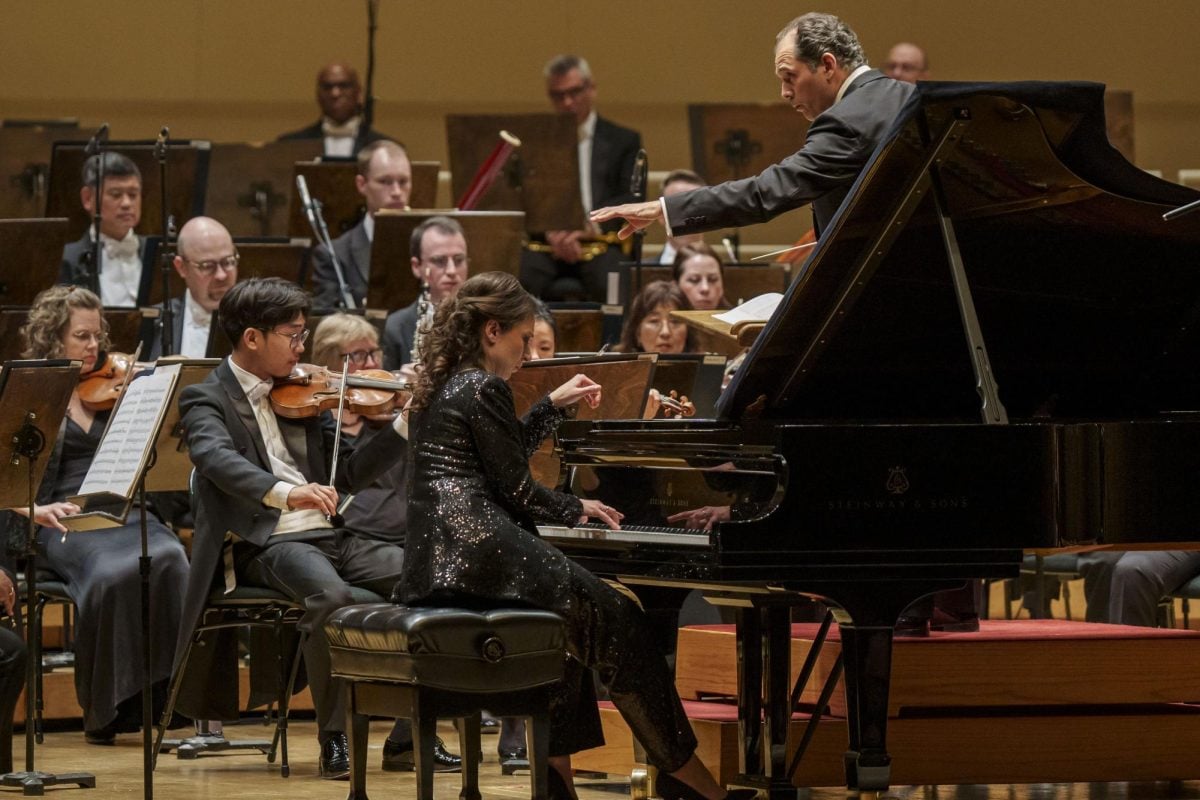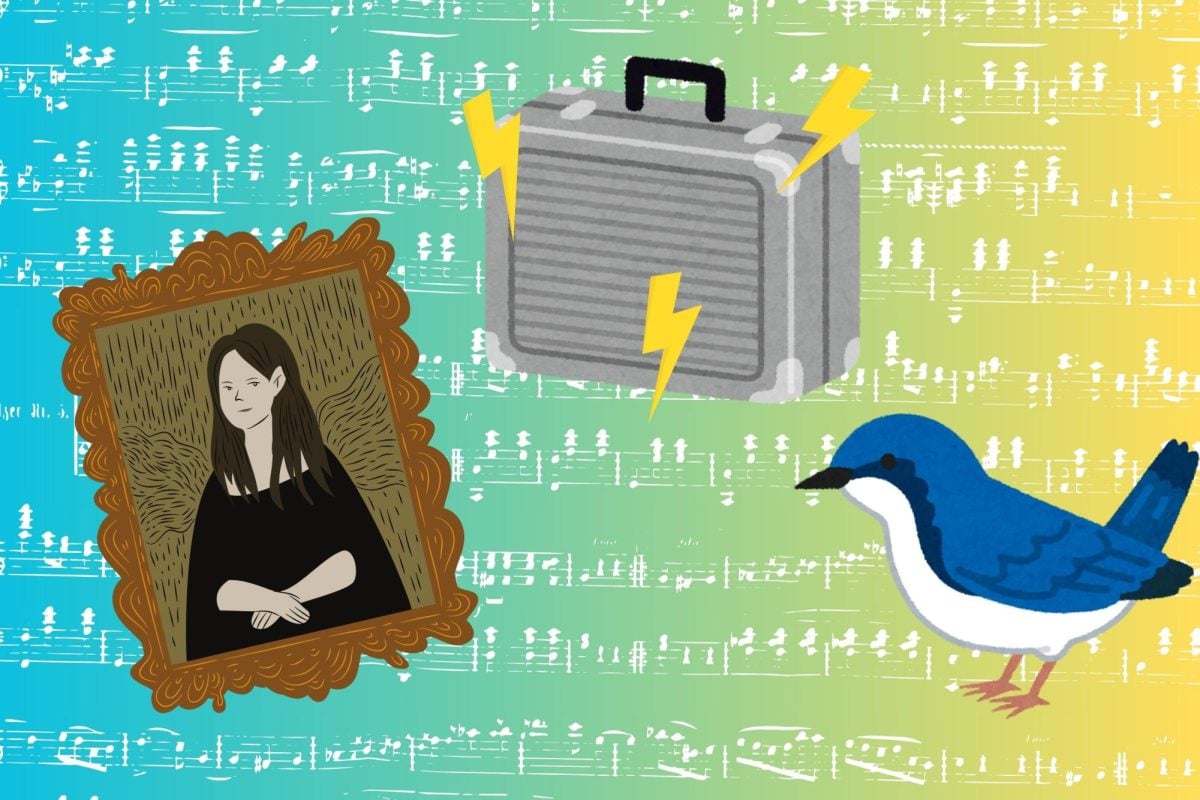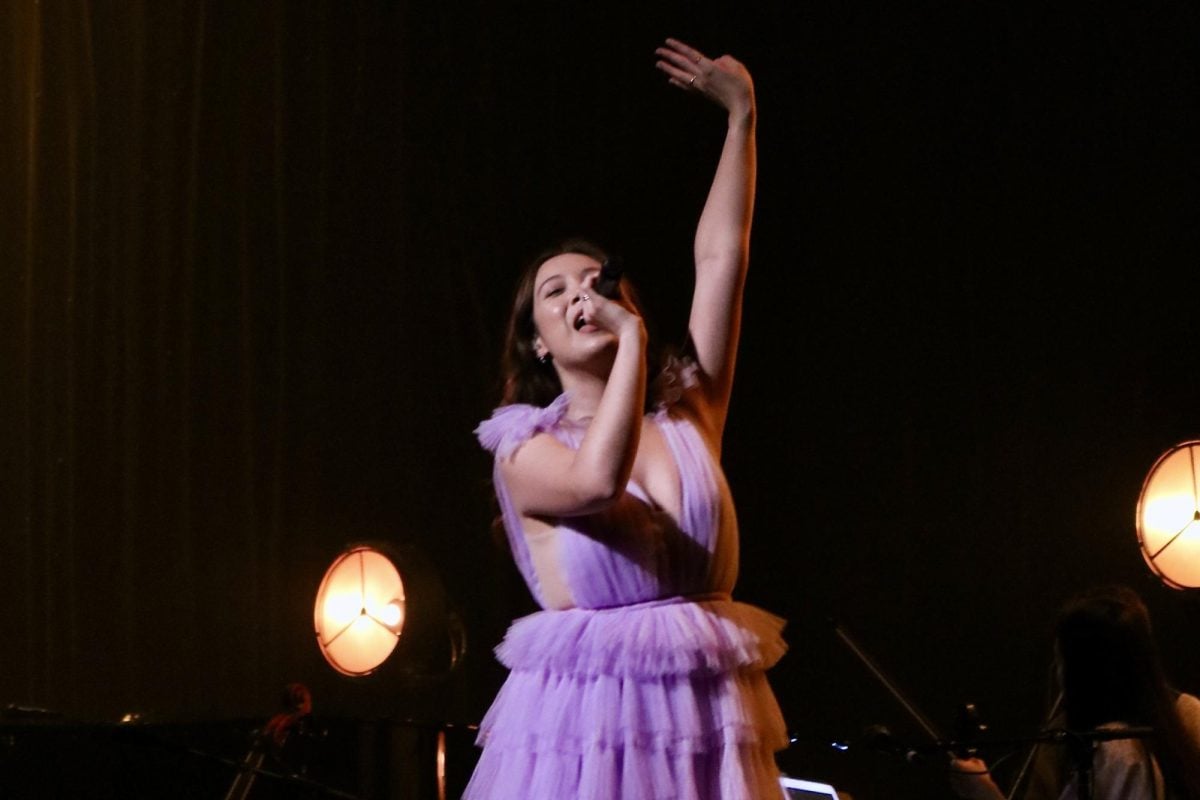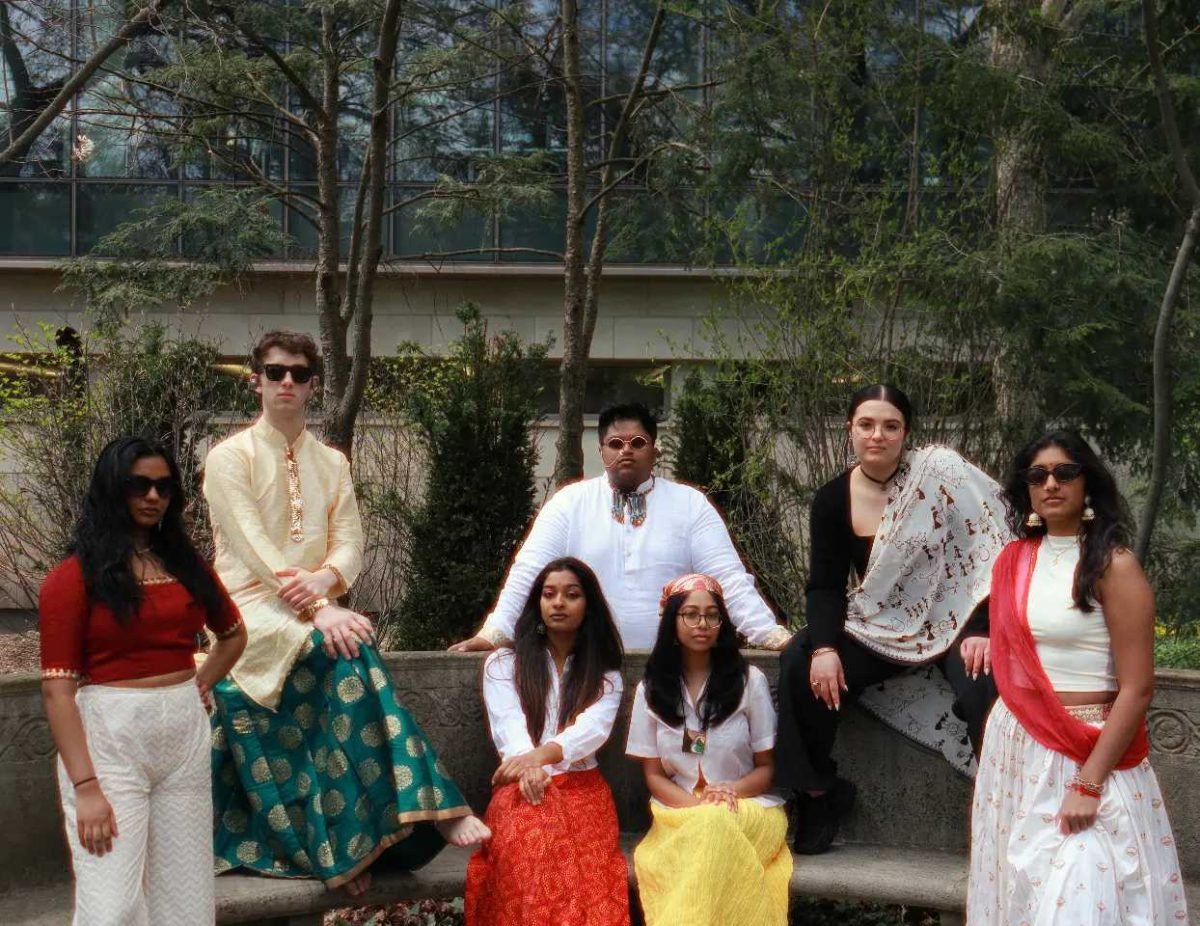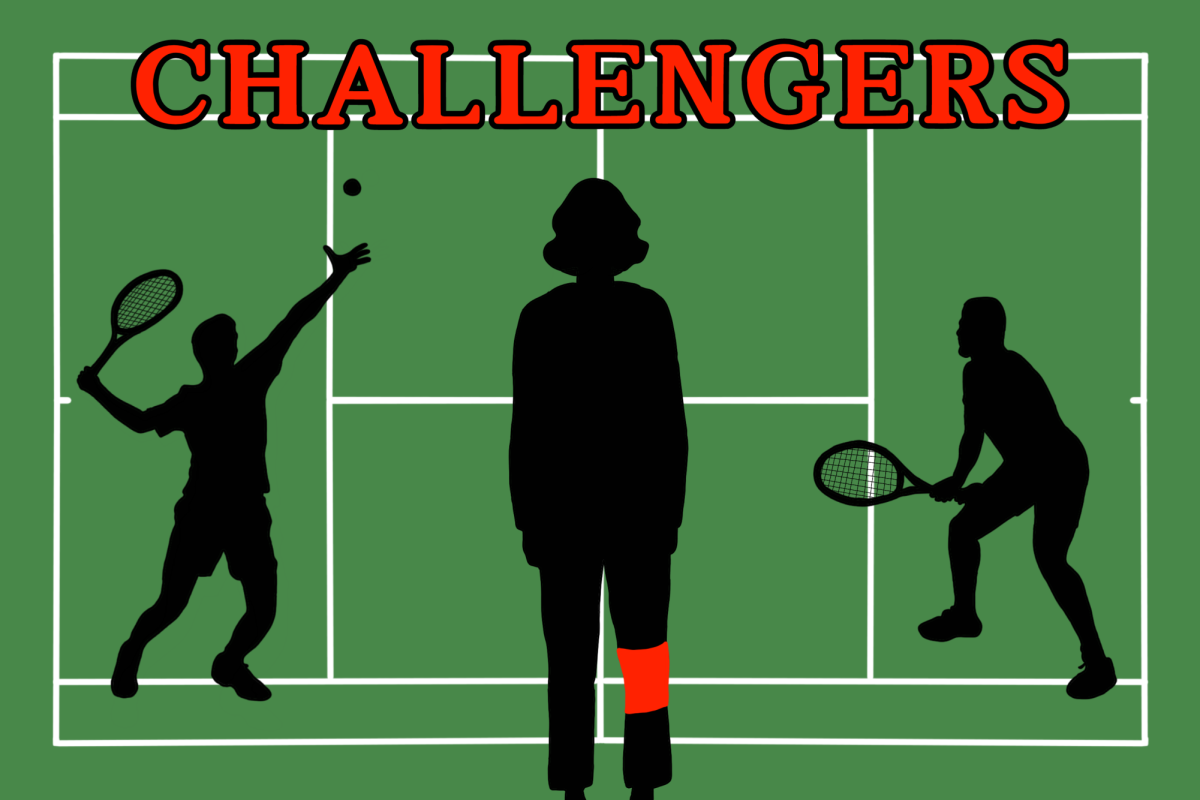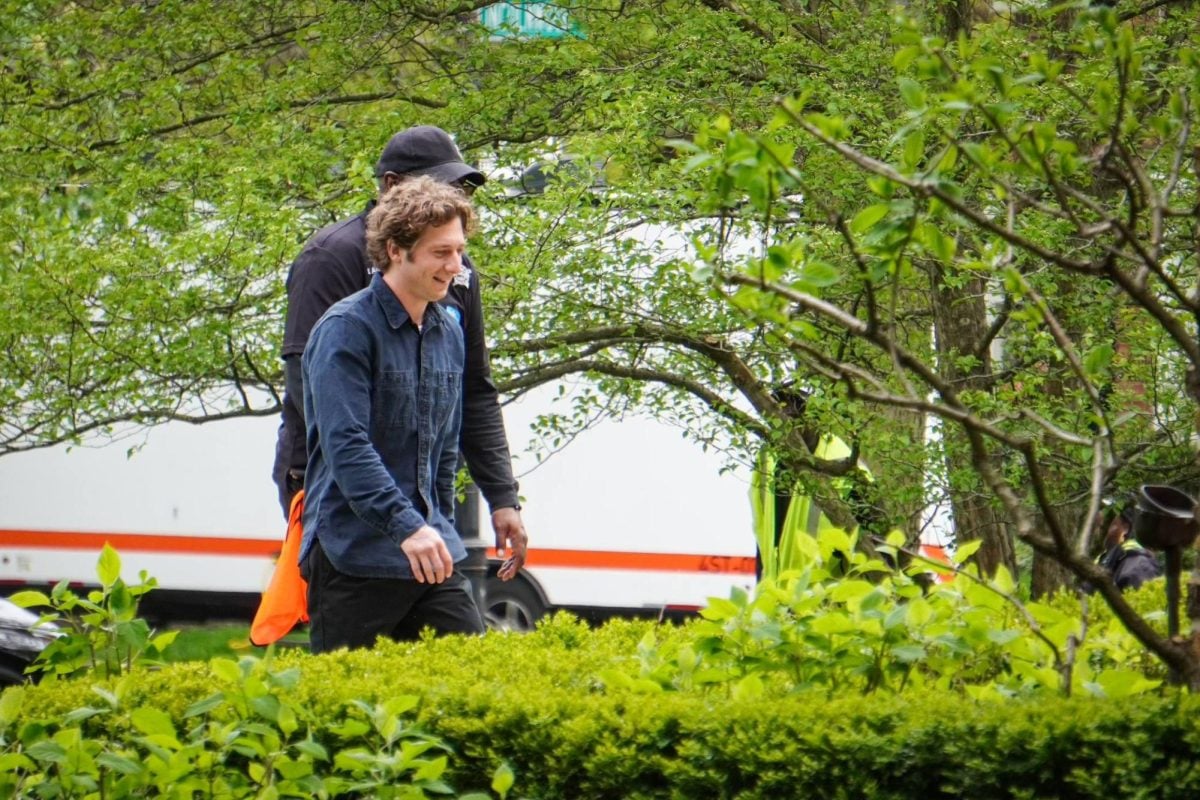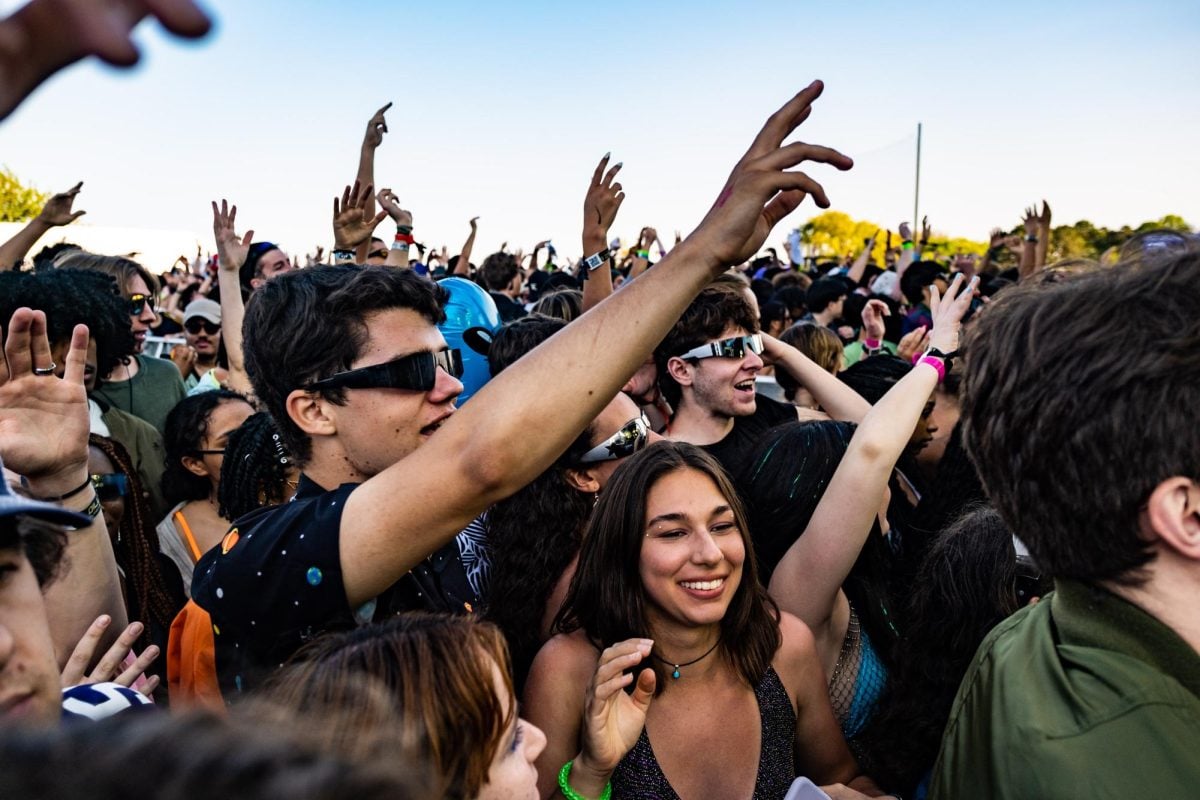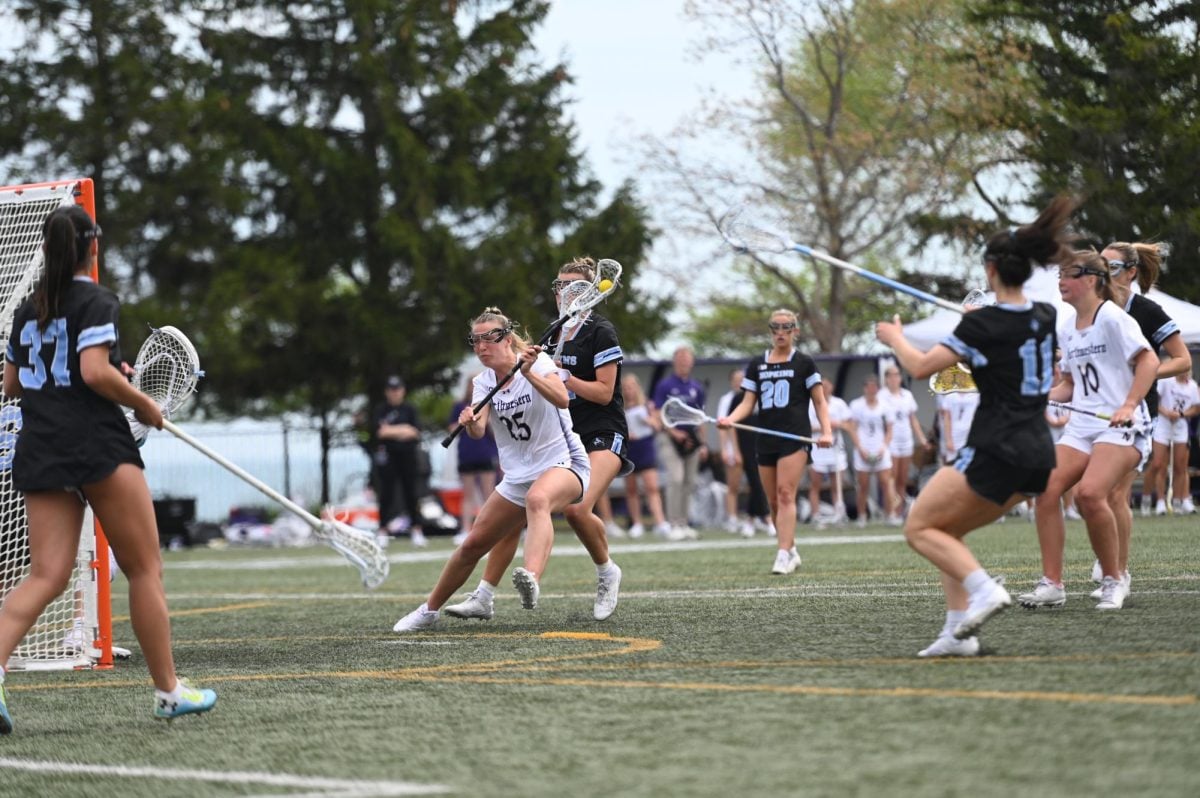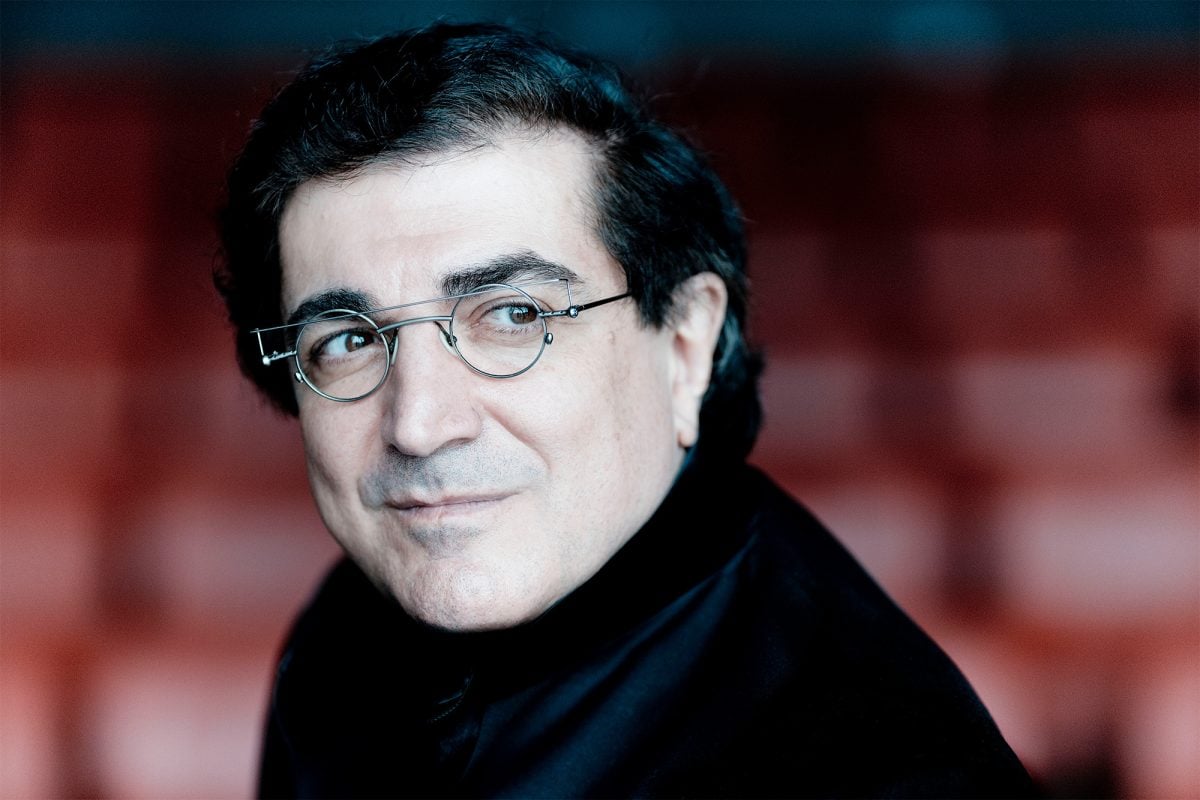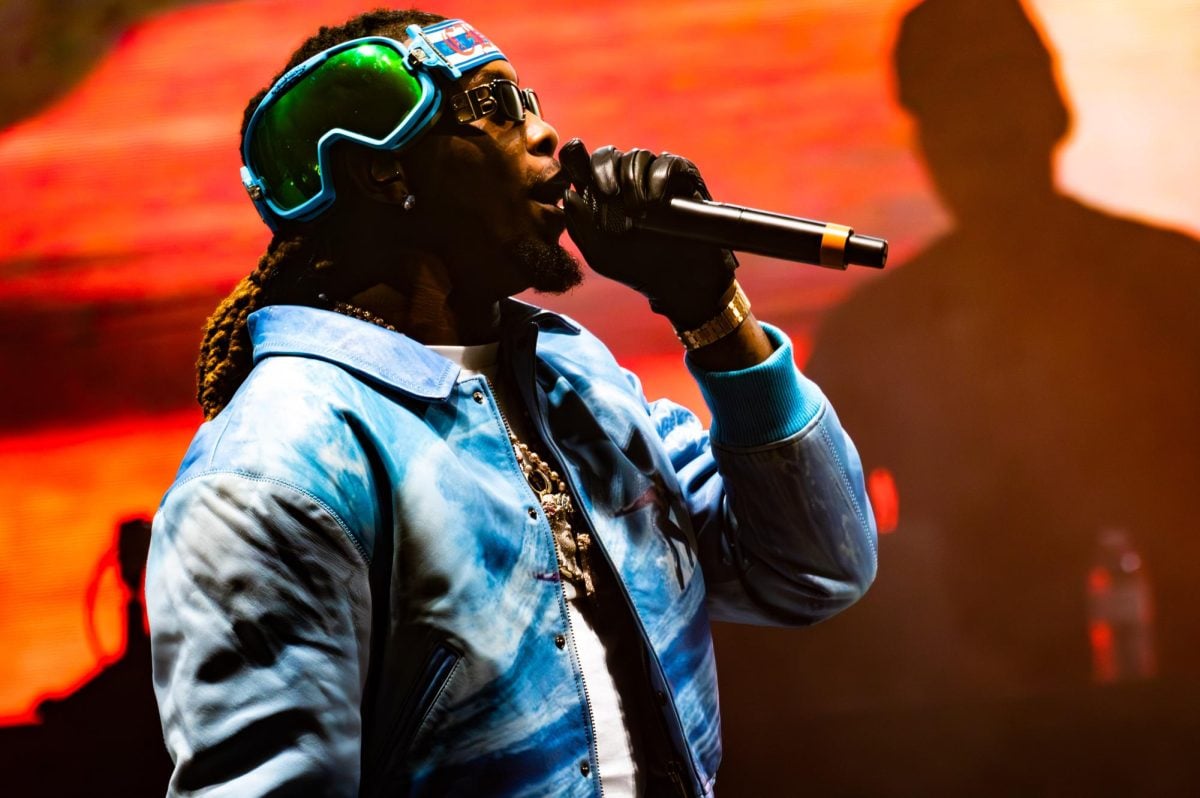Throughout their lyrical renditions of Chopin’s Piano Concerto No. 1 and Tchaikovsky’s Symphony No. 1 on April 20, pianist Yulianna Avdeeva, conductor Tugan Sokhiev and Chicago Symphony Orchestra members cleverly contrasted their articulation styles to weave wistful winter memories.
After Panufnik’s Heroic Overture — an unsettling fanfare that never left the listener feeling completely victorious — Avdeeva strode onstage. Donning a sequined black pantsuit, she exuded an air of disciplined confidence even before Sokhiev raised his baton to begin the Chopin concerto.
Though musicians generally don’t consider Chopin’s works programmatic — portraying a specific non-musical concept or person — Avdeeva’s performance seemed to personify a journey through grief.
CSO’s mournful orchestral introduction to the concerto created the perfect platform for Avdeeva’s entrance. The orchestra’s brass players — known for their bright, powerful sound — demonstrated remarkable precision, seamlessly blending into the strings’ melodic dance.
Subsiding back to a quiet E minor chord, the orchestra gave way to Avdeeva. She flung open the doors to the solo with an elegant restatement of the opening theme, which quickly cascaded to a solitary, lamenting melody.
Avdeeva’s playing resembled a lone widow singing to herself on a snowy winter night, transforming the concert hall into an intimate bedroom. She rolled her chords with patient clarity, building suspense as the harmony chased the melody.
The piano oscillated between what felt like warm reminiscences of better days and unyielding wrenches back to the isolated present, before the orchestra bridged the gap to the movement’s development, or middle section.
Here, Avdeeva articulated each phrase. Her playing brandished the full virtuosity of Chopin’s music while generating stormy turmoil that culminated in a grandiose repetition of the piece’s beginning.
As Avdeeva rolled into the coda, impatient notes urged the piano to speed up and our imaginary widow to move on and wake up. The piano solo ended on a deceptive cadence, leaving the orchestra to clear all lingering nostalgia from the hall.
The concerto’s second movement — a romantic flashback of sorts — made use of beautiful major sevenths and trickles of separated thirds to take the audience down memory lane.
Chopin’s final movement incorporated Eastern European folk themes into masterful displays of soloist technique. Even 30 minutes into her performance, Avdeeva maintained her collected articulation, as though the music — mature and resilient — was finally finding its own pace.
During the Tchaikovsky symphony, nicknamed “Winter Daydreams,” the CSO’s wind players took the spotlight.
The work’s first movement set the listener in the middle of a beautiful and dynamic snowstorm. Shimmering violin ostinato swirled around the audience like flurries of snow, while woodwind runs blew cold gusts of air at listeners. The brass and low strings took on a rugged tone, using their strength to stand their ground as the winter maelstrom grew ever more overwhelming.
Pockets of melody permeated the movement, especially solos from clarinetist John Bruce Yeh. His sunny tone brightened up the entire hall, encouraging listeners to find quiet beauty in the chaotic cold. Yeh’s colleagues in the flute and oboe sections provided similar respite.
The second movement was a warm cabin to the first movement’s biting snowstorm. Iterating through two wistful melodies, it conjured bittersweet memories as lone clarinet and oboe solos chased each other.
At times, Sokhiev moved through the second movement too slowly. Tchaikovsky’s works generally have expansive structural accumulation, meaning they don’t need dramatic delays to build and release suspense. For this reason, the movement’s speed started to detract from its nostalgic value.
The third and fourth movements, much like Tchaikovsky’s later symphonies, waltzed through lilting melodies to reach a jubilant, folk-inspired conclusion. In the finale, an ominous initial theme quickly shifted to a major key, driving the rest of the movement forward. Yeh once again shined with a disciplined yet inviting tone in his solos, presenting Tchaikovsky’s themes with the perfect balance of pep and lyricism.
Several classical music lovers find many Tchaikovsky conclusions noisy or drawn-out, but this concert proved otherwise. Through Avdeeva’s virtuosic piano flourishes and the orchestra’s bombastic Tchaikovsky finale, both pieces in the concert brought listeners hope and strength by the end of the evening.
Email: [email protected]
X: @william2tong
Related Stories:
— Back to 19th-century Vienna: Yefim Bronfman performs Beethoven, Schubert, Salonen and Schumann
— Cosmia Opera Collective breathes life into opera, uplifts underrepresented composers
— Seong-Jin Cho and the Chicago Symphony Orchestra dazzle with Beethoven, Mendelssohn and Kernis

